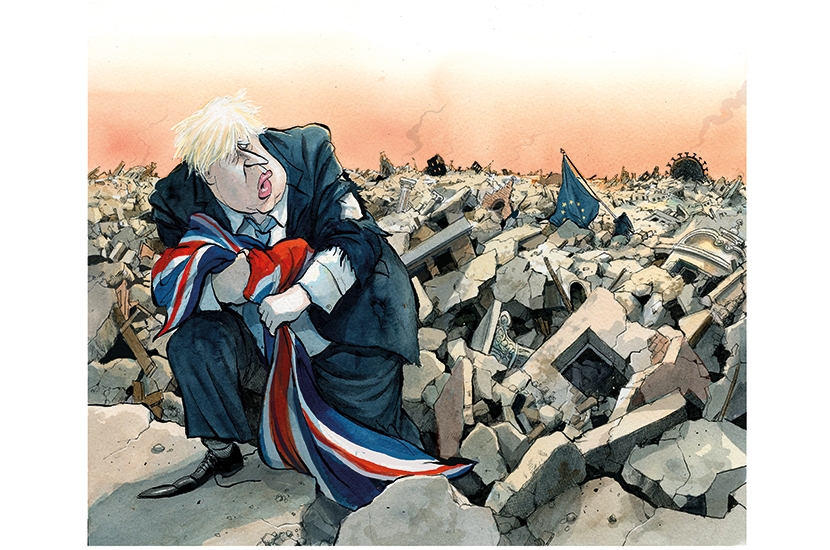What’s the point of Brexit? We are told it is to take back control, but that is a means to an end: what is the end?
The current answer is another slogan, ‘unleashing Britain’s potential’, which strings together a collection of policies: trade deals with non-EU countries that, to date, largely replicate existing deals; tougher immigration – although the government’s plan will open up the UK to higher levels of immigration from non-EU countries, and has no cap on numbers; taking control of our waters (fishing is about 0.1% of UK GDP); new rules for our ports and shipping (0.6% of GDP); banning live animal exports; blue passports.
European leaders must be breathing a sigh of relief that the Conservative party appears to have lost its appetite for radicalism
Amidst the murk, there is a silhouette of the destination: a bigger state. The Conservative manifesto and the government’s first budget, which pre-date Covid-19, chart a course to higher spending and more government intervention. The pandemic has accelerated this trend, as it has so much else. Government debt is now at its highest since 1960 with borrowing at a peacetime record high. Private sector employment has collapsed, while public sector employment has grown. Rather than expressing concern about this trend and explaining how it will be reversed, Conservatives boast about the spending spree. A recent email from Conservative Headquarters listed £113 billion of government spending as a ‘promise kept’, instead of a response to Covid-19.
This approach will infuriate many Brexit supporters. The point of Brexit is, in their minds, to create a lean state, which embraces competition and change, deregulating where necessary, and keeping taxes low. Instead, the government seems to have sided with the other group of the Brexit camp: those who want to shelter under the state’s duvet, away from the cold wind of globalisation and competition. The direction of policy is towards protecting industries, shying away from deregulation, and higher taxes (especially on capital).
Some argue that it is necessary to embrace a big state as this is how the Conservatives will keep the support of former Labour voters, especially in the Red Wall seats. This is a false choice. Experience shows that the way to ‘level up’ is to support the private sector, which creates jobs and pays for public services. The man in Whitehall rarely knows best.
The one beneficiary of all this is the European Union. Irrespective of what is in any trade deal, the government appears to have no clear agenda to use its 80 seat majority to turbo charge the UK economy and tempt foreign investors here, rather than the EU. European leaders must be breathing a sigh of relief that the Conservative party, famed for overturning the post-war orthodoxy in the 1980s with a supply side revolution – privatisations, trade union reform, the Big Bang – appears to have lost its appetite for radicalism. On big issues – such as how to create a competitive workplace in the gig economy, how to turbocharge the City’s status as a global financial centre – there is silence.
Maybe No. 10 has a secret plan that is about to be revealed, but the chances are low. A new consensus between left and right is emerging; by the time of the next election, there may be little to choose between Labour and Conservatives other than who is the best manager of the economy. Was that the point of Brexit?






Comments